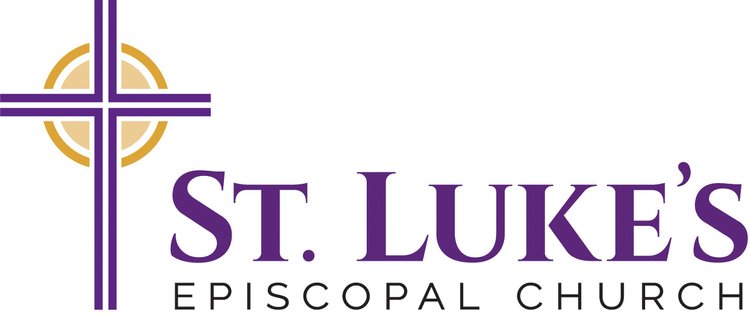Strategically Planning for Faith
Friends,
Paul Johnson was the head of St. Luke’s search committee when I was called to be your priest, and he said something to me after I was officially called that has always stuck with me. He said, “Your strengths are our weakness, and our strengths are your weakness.” With the point being, that we would complement each other well. I don’t remember telling the committee that organization, following protocols, and all that stuff wasn’t my strong suit, but apparently, they picked up on it fairly quickly!
It was humbling and strangely heartwarming to have been seen so clearly, and I remember feeling excited knowing this group saw a place for me in their Church, and also felt like they could teach me something. I hate to say it, but St. Luke’s has convinced me of a number of things that I never thought I would support. In my previous position being loose and dynamic gave us the flexibility to shift our much smaller and more vulnerable population. It gave us the freedom to make much needed drastic decisions that brought life into the Church. The system was small enough, and the congregation was ready for something new, so everyone was on board. We had our fair share of failures, but overall, it brought life to the Church. This experience convinced me that strategic plans would only ever get in the way of listening to where God is leading us.
Fast forward a few years, and I have to confess that one of the most energizing things I do is meet with Mike Saperstein and Melissa Bluey about our strategic plan. In our last vestry retreat in March, we all identified the need for a plan. For the past three years I got to lean into my strengths, start new things, and focus on growth for the sake of growth. Now that we see this isn’t just a flash in the pan, and that many of the new people we are welcoming are probably going to stay, we need a plan on how to grow with intention. This is where Mike and Melissa come in. Strategic plans that I have seen felt too business like, where the stated goal is to increase pledges by a certain percentage by a certain year. Maybe plans like these are necessary, but they don’t feel like ministry.
My experience so far with this plan has been an incredible exercise in discerning how to steer our Church for the future. Money is part of the conversation, but the main focus is talking about what we need to do to grow into our call to serve God and our neighbor. In talking through this plan, we have been able to consider how to grow the staff to help us in this mission. Do we need more clergy, administrative staff, or lay program staff? Honestly, I could hire one of each tomorrow and keep them busy. Walking through the steps of how to discern, prioritize, and accomplish things always leaves me excited for the future of our Church.
There are a lot of things we are throwing around right now, and I keep asking myself, “what would make me feel good about our ministry in three years?” I keep coming back to forming relationships. When we know each other, pray for each other, and spend time together, we become greater than the sum of our parts, so why not make “fostering new relationships” an official goal of our strategic plan? How to go about this can be a bit tricker. I love the ideas of having groups that host each other for dinners. How do we make room in existing ministries for new people to join. There is a lot of energy around our BBQ ministry, can someone show up excited about smoking meat and get welcomed into that group? I hope so, but if there are hurdles, how do we remove them to highlight this great ministry? Everything we do runs off of relationships. Do ministries know how to recruit? If not, how do we teach them to evangelize their corner of our outpost of the Jesus movement? Tell me, what is the good news of the St. Luke’s Buildings and Grounds Committee?
The plan is still very much in its infancy, and I’m sure you’ll hear all about it later on, but right now help me imagine what we need to do to make our Church feel more like Church. I can’t promise I’ll make it happen, but if you have any ideas, shoot me an e-mail and maybe we can find some time to meet over coffee.
Thank you for being the Church, and where ever we end up in three years, I am thankful that together we will still be the Church.
Blessings,
Nick
